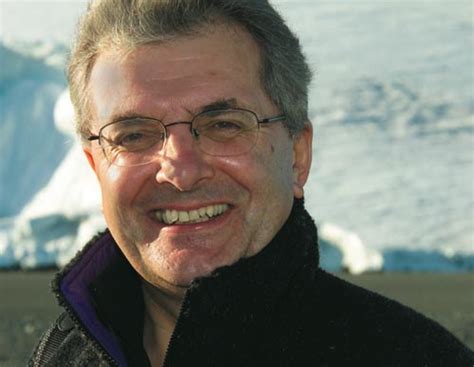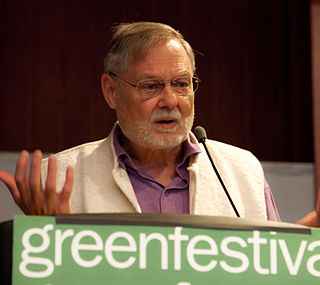A Quote by William McDonough
We see a world of abundance, not limits. In the midst of a great deal of talk about reducing the human ecological footprint, we offer a different vision. What if humans designed products and systems that celebrate an abundance of human creativity, culture, and productivity? That are so intelligent and safe, our species leaves an ecological footprint to delight in, not lament?
Related Quotes
Although reducing human emissions to the atmosphere is undoubtedly of critical importance, as are any and all measures to reduce the human environmental "footprint", the truth is that the contribution of each individual cannot be reduced to zero... If we believe that the size of the human "footprint" is a serious problem (and there is much evidence for this) then a rational view would be that along with a raft of measures to reduce the footprint per person, the issue of population management must be addressed.
There must be limits, somewhere, to the human footprint on this earth. When the whole of the world is reduced to nothing but human product, we will have lost the map that can show us how we got here, and can offer our spirits an answer when we ask why. Surely we are capable of declaring sacred some quarters that we dare not enter or possess.
The money economy thus leaves a large ecological footprint, defined as the amount of land and resources required to meet a typical consumer's needs. For example, with only about 4% of the world's population, the United States, the largest money economy, consumes in excess of one-quarter of the world's energy and materials and generates in excess of 25 percent of the world's greenhouse gas emissions.
It's worth remembering that all technology leaves a footprint. For example, our own technology is leaving a footprint in terms of global warming, which could be detected from a long way away. One assumes that a very advanced civilization that has been around maybe millions and millions of years would have an even bigger footprint that might extend beyond its planet to its immediate astronomical environment.
Despite one or two minority appeals our society is not outraged at man's unremitting use of the animal world. Ecologists and environmentalists may talk of "ecological consciousness" or "environmental responsibility" but seldom, if ever, is this responsibility articulated towards other non-human species in particular.
We're starting with our own carbon footprint. Not nothing. But much of what we're doing is already, or soon will be, little more than the standard way of doing business. We can do something that's unique, different from just any other company. We can set an example, and we can reach our audiences. Our audience's carbon footprint is 10,000 times bigger than ours... That's the carbon footprint we want to conquer.
The ecological crisis we face is so obvious that it becomes easy...to join the dots and see that everything is interconnected. This is the ecological thought. And the more we consider it, the more our world opens up." The ecological thought "...is a vast, sprawling mesh of interconnection without a definite center or edge. It is radical intimacy, coexistence with other beings, sentient and otherwise.








































